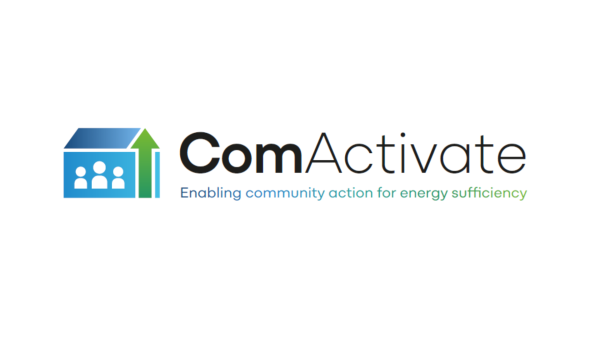
A new report from the HouseInc project examines how smart meter data can improve the measurement and identification of energy poverty, offering an alternative to traditional survey-based methods.
Publications (274)

A new report from the HouseInc project examines how smart meter data can improve the measurement and identification of energy poverty, offering an alternative to traditional survey-based methods.

This new publication by the ComActivate project offers an in-depth analysis of EU and national policies addressing energy poverty and building renovation.
Disadvantaged communities in both the EU and the US are disproportionately affected by energy poverty, pollution, and poor housing conditions. New York State’s Climate Leadership and Community Protection Act (CLCPA) stands out with its legal requirement that at least 35%—and a goal of 40%—of climate investments benefit disadvantaged communities. The New York State Climate Leadership and Community Protection Act: Lessons for Shaping an Inclusive Energy Transition in the EU explores how this investment mandate has shaped policies in building renovation, clean heating and cooling, community energy, and workforce development—and what Europe can learn to ensure its green transition leaves no one behind.

The aim of the POWER UP national guides is to support interested stakeholders (such as cities, municipalities, citizens and citizen energy communities, and municipal companies) to develop a social energy model by following the activities developed as part of the POWER UP project.
The roadmaps offer adaptable frameworks for rural municipalities to address building renovation, energy poverty, and carbon footprint reduction in ways that are both practical and community-focused.

Drawing upon the experiences of six municipalities involved in the POWER UP project, this report produced by University of Manchester presents policy recommendations framed at both, the local and national level. The policy recommendations were co-developed with the project partners, pilots, and researchers from the University of Manchester, UK, involved in POWER UP. The policy recommendations cover a range of topics – including definitions of energy communities, technical regulations, funding mechanisms, and planning procedures. The recommendations also address a number of stakeholders, including municipality departments, community organisations, and regulatory actors.

This policy brief corresponds to the WELLBASED second action field, Effective Governance to implement urban programs against energy poverty through health lenses, using a Health in All Policies approach

This policy brief corresponds to the fourth section, Monitoring and Evaluation. It provides policy recommendations for monitoring energy poverty and health metrics, along with assessing the impact of integrated policies and interventions.

This policy brief corresponds to the fifth section, Funding. It provides recommendations and insights into funding schemes to address energy poverty with a focus on health, drawing primarily from the financial models examined within WELLBASED.
This policy brief corresponds to the third section, Capacity Building. This section provides concrete tools and methodologies designed to increase the capacity level of key stakeholders in addressing energy poverty.

This policy brief corresponds to the first section, local action. It provides recommendations and insights into local action to address energy poverty from the WELLBASED project.

This report describes the efforts undertaken in the four pilot sites to organise these energy poverty mitigation measures.

Housing and energy poverty are deeply inter-connected. Rising housing costs and inefficient buildings intensify the financial burden and limit access to essential energy services for vulnerable households.The policy brief is issued by the Joint Research Centre.
The objective of this Notebook is to address energy poverty in the Global North and the Global South, its conceptualization, measurement and main measures and/or policies to address it. It also presents how all this fits into the framework of global warming and energy transition; in order to reflect on the subject and determine policy implications, as well as possible commonalities between some measures and others and to understand to what extent it is the same problem despite the variety of ways to conceptualize, measure and treat it.
The report provides a complete overview of the characteristics of the participants in the WELLBASED evaluation study and the impact of the WELLBASED Urban Program on a broad range of health, well-being and energy indicators. The overarching objective of WELLBASED running between 2021 and 2025 was to propose the design, implementation, and evaluation of a novel, comprehensive urban programme, based on the social ecological model, to significantly reduce energy poverty and its effects on the citizen’s health and well-being.
In this report the WELLBASED team is introducing 7 financial instruments which aim to alleviate energy poverty and its negative effects. The report also dedicates a large part to the Urban Financial Metabolism (UFM) methodology and to Social Impact Bond (SIB) which is a novel tool to finance innovative social projects.
Through this support scheme, about 300 municipalites received support from 2022 to 2024 from all different EU countries. We have selected six cities to present the inspiring results of this collaboration.
This learning guide helps you move beyond diagnosis and planning to implement energy poverty mitigation measures that are ready to be put into practice. Now is the moment to turn your goals into concrete results.
This WELLBASED report details targeted actions across six European pilot cities (Edirne, Jelgava, Leeds, Heerlen, Óbuda, Valencia) in energy poor households to improve health outcomes through evidence-based approaches and systemic data collection. The findings provide a framework for replication by other European cities and policy recommendations to enhance the effectiveness of future urban health initiatives targeting energy poverty.
Explore the study on transport poverty in the EU. This report examines definitions, indicators, and mitigation strategies, with insights from Germany, Poland, Romania, and Spain.

This handbook aims to provide practical advice based on collective peer experience and help
municipalities face the challenges of the phase of action implementation.

This document systematizes the 10 initial steps to create an energy community, namely: 1) Pitching the idea to the local community 2) Seeking beneficial partnerships 3) Assessing the legal and regulatory context 4) Selecting buildings and sizing renewable energy systems 5) Defining the legal entity 6) Developing the financial and operational model 7) Defining internal regulations 8) Communicating with the local community and recruiting participants 9) Identifying and including vulnerable families 10) Licensing the renewable energy community
Are you ready to tackle energy poverty in your community? This short guide provides a clear, step-by-step guide for municipalities to identify the most feasible and impactful actions to prioritise at the local level.

This scientific article explores the potential roles that local organisations can play in delivering energy support to energy-poor households and maps their needs for effective collaboration.
The new report by the RENOVERTY project indicates the rigorous need for policy transformations and improvements to address energy efficiency and energy poverty issues in rural areas.